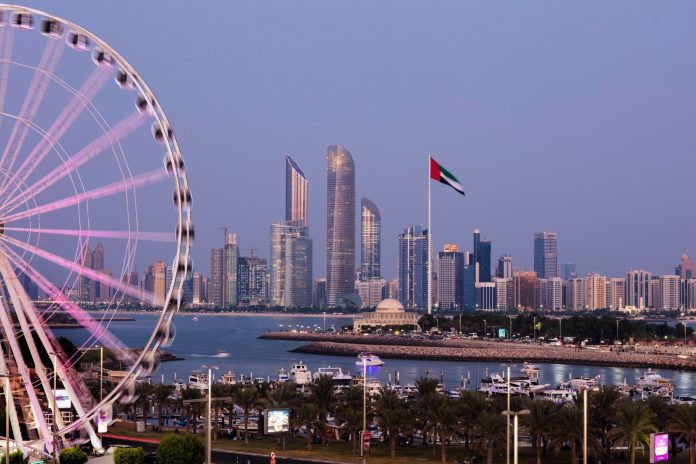
In what’s being known as probably the most important shift in U.S. commerce coverage in over a century, the introduction of “reciprocal” tariffs by the United States is rippling throughout international markets. Targeting imports from nations with massive commerce surpluses in opposition to the U.S., the brand new coverage applies double-digit tariffs — as much as 39% in some instances — on international items, affecting economies from Asia to the Middle East.
Yet, whereas alarm bells ring in lots of capitals, the United Arab Emirates seems comparatively insulated, and even strategically positioned to learn from this international realignment.
A Different Kind of Tariff
Unlike conventional tariffs utilized to particular items or industries, the brand new U.S. mannequin calculates commerce penalties primarily based on the scale of a rustic’s commerce surplus with America. The bigger the excess, the upper the tariff. Iraq, for instance, faces a 39% reciprocal tariff, whereas China has been hit with 34% — each figures derived from the dimensions of their commerce deficits with Washington.
The UAE, against this, maintains a balanced commerce relationship with the U.S. and is topic to the minimal tariff band of 10%. More importantly, oil, fuel, and refined vitality merchandise — which make up a major share of Gulf exports — are exempt from these measures, instantly lowering publicity for main exporters just like the UAE and Saudi Arabia.
A Short-Term Cushion
In the fast time period, the impression on the UAE financial system is predicted to be minimal. With its diversified export profile, well-developed free zones, and powerful international logistics infrastructure, the Emirates is basically shielded from probably the most disruptive features of the brand new coverage.
Key non-energy exports akin to aluminum, gold, and electronics could face modest price changes, however none on the scale that will threaten commerce flows. Moreover, enterprise and investor sentiment towards the UAE stays sturdy, particularly given the nation’s secure political setting and pro-business laws.
For multinational firms rethinking their provide chains, the UAE affords a compelling worth proposition: a central logistics hub, superior ports and airports, world-class digital infrastructure, and strategic entry to markets throughout Asia, Africa, and Europe.
Long-Term Strategic Advantage
Looking past the brief time period, the UAE might emerge as a winner within the shifting international commerce order.
As uncertainty deepens in U.S.-China-EU commerce relations, many companies want to diversify threat. The UAE — already a number one re-export and enterprise hub — might play a bigger position in regional worth chains, providing impartial floor for commerce and lightweight manufacturing.
Further, if the U.S. financial system ideas into recession beneath the burden of tariffs and inflation, the Federal Reserve is more likely to lower rates of interest. Thanks to the UAE dirham’s peg to the U.S. greenback, such strikes would translate into cheaper borrowing prices for UAE companies, encouraging funding in key sectors like actual property, tourism, and logistics.
The nation’s ongoing financial diversification technique — focusing on non-oil progress, tech funding, and data industries — is well-aligned with these traits. As others face strain to reshuffle, the UAE has already laid the groundwork for long-term resilience.
Risks Remain
That stated, regional publicity to international traits can’t be ignored. Should retaliatory tariffs between the U.S., China, and Europe escalate right into a broader commerce conflict, international demand — notably from Asia — might weaken. This would have an effect on each oil costs and the UAE’s non-oil export volumes.
Supply chain disruptions might additionally elevate enter prices for producers and re-exporters working from UAE free zones. And if international capital flows gradual, international direct funding into rising markets could also be delayed or reallocated.
Still, the UAE’s sturdy fiscal place, sovereign wealth reserves, and diversified international partnerships go away it well-prepared to soak up these shocks.
A Rare Opportunity to Lead
At a time when main economies are turning inward, the UAE’s openness, neutrality, and financial agility supply it a uncommon alternative to consolidate its position as a world connector.
While the world digests the implications of America’s most aggressive tariff technique in a long time, the UAE is staying centered on constructing a future-proof financial system — one which thrives on collaboration, innovation, and sensible positioningin a fractured commerce panorama.
What others see as disruption, the UAE could nicely flip into alternative.
